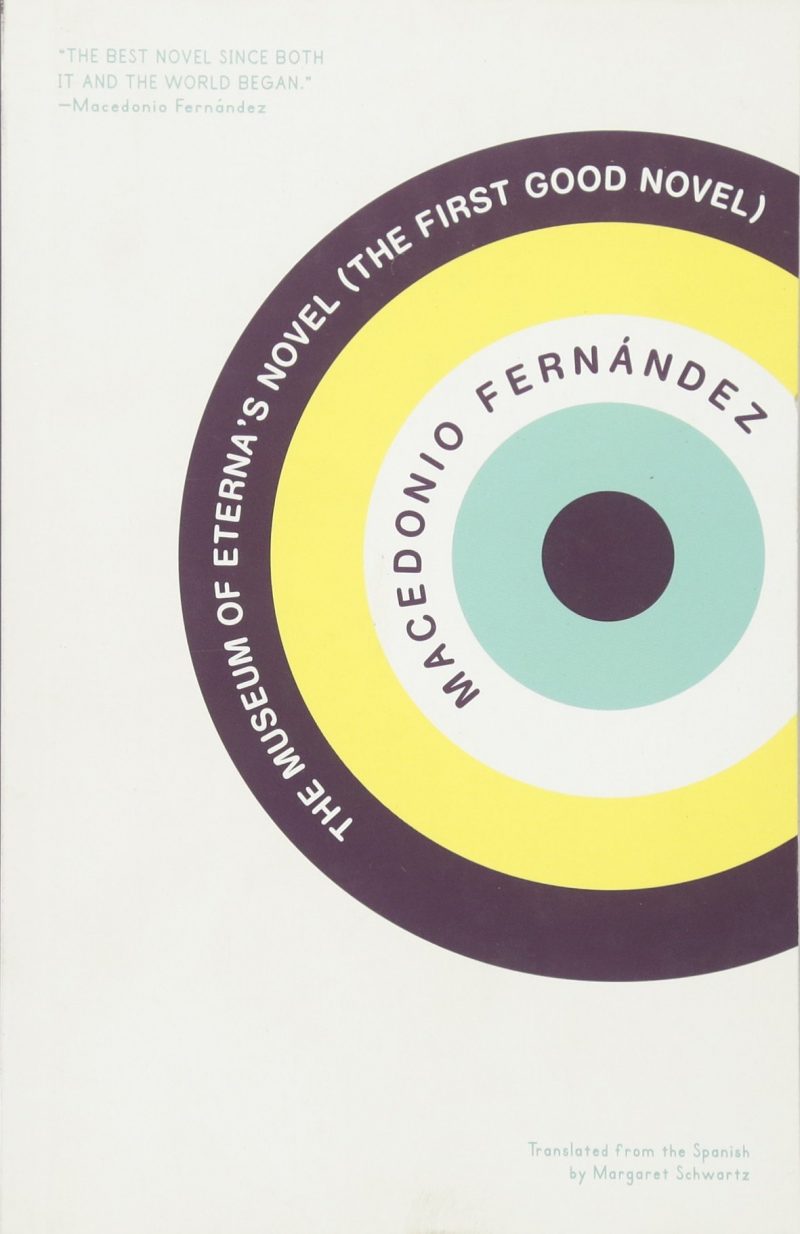Dear Macedonio Fernández,
I’ve wanted to write you ever since I learned of your ill-fated presidential run, and I’m glad that the publication of The Museum of Eterna’s Novel has finally afforded me an excuse to do so. I have to admit: while I enjoyed the book, I’m not quite sure what to make of it. You introduce it as the world’s “first good novel” and go through the motions of fiction, developing characters, building a house—“La Novela”—for your characters to live in, even elaborating a plot before the story begins. But despite all that, Eterna-as-novel (or conventional novel, anyway) never really takes shape. Meta-theorizing overshadows narrative as the book’s main focus (you say at one point that the book is interested in a “reading of itself”); prologue after prologue delays the novel’s opening (more than fifty in total); and by the time Eterna actually starts (on page 127) it’s so mired in self-consciousness that it feels more like a dry run of a play than a work of fiction. The closest I can find to an answer is the half-joking concession that you’ve left behind a perfect theory of the novel and an imperfect example of its execution.
But what kind of novel did you have in mind when you started writing Eterna? You say that its goal is to disrupt the “self-sameness of the reader”—to force them (me) out of their respective realities and into the eternal consciousness of the novel. In short, to make me forget my existence outside of your book. If the novel’s central problem is love in the face of death (between the President and Eterna, between the reader and the writer), then your ideal reader must become a lover, giving herself over to the “total presence” of the novel, immortalizing herself in someone else’s creation.
In this sense, your “metaphysics of total love”— the “perfect theory” to the leaky novel—relies on readers becoming characters and fiction be- coming reality in order to defy death. Do I have this right? It’s a lofty project, but I have to confess: I think I’m to blame for its failure.
Let me explain. You (Eterna) need me to exist, and you (Macedonio) need me to enter the novel, to validate your metaphysics and to step with you outside of time. “This is a book that needs many friends,” you say, and you enumerate different kinds of possible readers: skip-around readers, orderly readers, “often-dreamed-of” readers, etc. And I want to be your friend—I really do.The novel may need the reader to live forever, but readers—myself included— tend to be unfaithful companions. Your efforts to keep me around—engaging me in dialogue, courting me as a “skip-around” reader—don’t work forever, and eventually I did finish the book.
If it’s true as you say that “either Art has nothing to do with reality, or it’s more than that,” then Eterna struck me as a book that wanted to be more, but confronted the limit of the novel (me) and resigned itself to wandering morosely around the fringes of fiction. But then, this was exactly what I liked about it. Never before have I been able to stand with a novel and examine the edge of fictional possibility. It’s exhilarating. But ultimately, I guess this is a letter of apology. If Eterna can never be your perfect marriage of theory and novel, then I, the reader anxious to see how things end up, am at least partly at fault.
Sincerely,
Jessica Loudis





